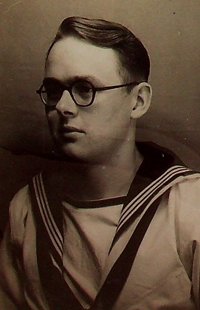Author, Journalist, Historian
Richard Hall
Richard Hall was born in Margate. His parents were Glady Muriel (nee Alcock) and Douglas Beecroft Hall. His father made a shaky living running boat-trips for holidaymakers until the family emigrated to Sydney in Australia when Richard was 4 years old. A brother, Robert, was born there after his father abandoned the family. Gladys and the two boys returned to England, where Richard attended Hastings Grammar School.

On leaving school, he began his journalist career on the Evening Argus in Sussex as a junior reporter where he earned 7s 6d a week with 2s 6d bicycle allowance. During World War 2, he was drafted into the Royal Navy as a signaler/coder. He served in HMS Chiddingfold, a destroyer in the Mediterranean, damaging his eyesight in the process.
Demobbed at the end of WW2, he obtained a place at Keble College, Oxford University and received an honours degree in English. He was co-editor of the University paper Isis, and among his friends were Kenneth Tynan and Anthony Sampson. During this time, he married his first wife Barbara Taylor whom he had met in the Royal Navy when she was a Wren also doing coding work.

He worked for a short while on the Oxford English Dictionary staff and then on Picture Post. Moving to the heart of English journalism, he joined the Daily Mail in Fleet Street, where he worked with Derek Ingram as a sub-editor, but found domestic reporting restricting.
The family (now including four sons) moved to Northern Rhodesia in 1955, where he initially worked on in-house publications for a mining company in Mufulira. After three years they moved to Lusaka and he worked for a short period in the Northern Rhodesia Government’s Information Department. In 1960 he became editor of the African Mail (later renamed the Central African Mail) which he co-founded with Alexander Scott and David Astor.

Throughout the 1950s and 1960s, Hall remained at the centre of the de-colonisation process in Northern Rhodesia, with friendships that included Kenneth Kaunda, who became first president of Zambia. Following Zambia’s independence in 1964, he became editor of the Times of Zambia, (a newspaper owned by Tiny Rowland).
In 1967 political pressures forced him to leave Zambia. Richard Hall returned to England as African correspondent of The Observer. He was the last journalist to leave Biafra in January 1970, and his harrowing report of the collapse was published in newspapers around the world and by Gemini News Agency. He later became Commonwealth editor and then editor of the Observer Colour Magazine. During that time was a proponent of an ultimately unsuccessful fight for greater journalistic independence from its owners. He may have hoped to be editor, but that job was retained by Donald Trelford.
During the early 1980s he worked as a senior columnist (Men and Matters) for the Financial Times.
In 1986, he founded his own financial and political bulletin Africa Analysis.
He wrote a number of books on African politics. He also produced a number of biographies and histories, ranging from the early Victorian explorers Sam and Florence Baker and Henry Morton Stanley, to the modem merchant-adventurer Tiny Rowland.
Richard Hall lived in Oxfordshire for the last 15 years of his life, where he completed his last major book, Empires of the Monsoon. A wide-ranging history of the Indian ocean, focussing on the waves of foreign influence along the East African coast from the earliest arab traders to the end of the colonial period.
He remained active both as editor of Africa Analysis and as a writer until his death in 1997.
Richard Hall married twice, first to Barbara Hall, a successful journalist and author in her own right and respected crossword compiler and puzzles editor for the Sunday Times. His second marriage was to Carol Cattley, whom he met whilst working at the Observer. Richard Hall had 5 sons from his first marriage.
Richard Hall’s obituary in The Guardian
Richard Hall’s obituary in The Observer
Richard Hall’s obituary in The Times
Tribute by Zambian President Kenneth Kaunda
Richard Hall’s papers are archived at the Institute of Commonwealth Studies Library, University of London